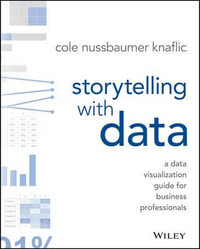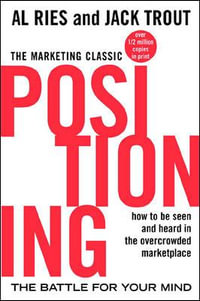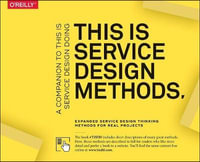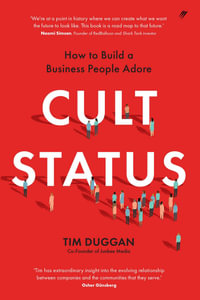| Preface to the First and Second Editions | p. xi |
| Preface to the Third Edition | p. xiii |
| Preface to the Millennium Fourth Edition | p. xv |
| Acknowledgments | p. xix |
| Getting Started | |
| Why Has This Book Been Written? | p. 3 |
| Have Confidence--You Can Do It: An Historical Perspective | p. 6 |
| Should You Start Your Own Practice? (You Can Do It) | p. 8 |
| Should You Work on a Job "for Experience" before Starting Your Practice? | p. 14 |
| Being a Contract Lawyer to Get Experience and Money While Building Your Practice | p. 16 |
| Earning a Living between Graduation and Opening Your Practice | p. 21 |
| Should You Start with Another New Lawyer? | p. 31 |
| Practicing with Your Spouse | p. 34 |
| Should You Practice Another Business or Profession While Starting Your Law Practice? | p. 35 |
| Should You Specialize? | p. 38 |
| Naming Your Law Firm | p. 40 |
| Sole Practice v. Partnership v. Shared Office | p. 42 |
| The Written Business Plan | p. 44 |
| Managing Your Student Loan | p. 48 |
| Getting Located | |
| Where Is the Best Place to Open Your Office? (From a Client-Getting Point of View) | p. 55 |
| Where Should You Locate Your Office for Your First Year or Two? (From a Cost Point of View) | p. 59 |
| Should You Trade "Space for Services"? | p. 62 |
| How Do You Get the Best Space Arrangement? | p. 65 |
| Practicing in a Law Suite | p. 67 |
| Practicing from Your Home | p. 72 |
| Getting Equipped | |
| How Much Cash Do You Need to Start Your Practice? | p. 81 |
| How to Get a Rich Relative or Friend to Finance Your Start-up Costs by Offering Tax Advantages | p. 84 |
| Checklists of Needs for New Law Office | p. 86 |
| Office Supplies and Procedures | p. 90 |
| Personal Computers, Word Processing, and Office Technology | p. 99 |
| Should You Do Your Own Word Processing? | p. 121 |
| Should Your Office Furnishings Be Lavish? | p. 123 |
| Announcements, Stationery and Professional Cards, Christmas Cards, and "Mailing Lists" | p. 125 |
| Getting Clients | |
| How to Handle Friends and Relatives | p. 135 |
| How to Market Your Services | p. 138 |
| Cost-Effective Media Advertising | p. 140 |
| The Importance of Accepting and Promptly Returning Telephone Calls | p. 147 |
| Managing Written Communication | p. 151 |
| Can You Get Clients from Organizations? | p. 161 |
| Cold Calling to Get Clients | p. 162 |
| Insurance Claims Adjusters: A Source of Clients | p. 164 |
| Shmooze Your Vendors | p. 166 |
| How to Accept Personal Injury Cases | p. 168 |
| How to Communicate Settlement Offers to Clients | p. 174 |
| Can You Get Clients by Running for Political Office? | p. 176 |
| Getting Paid Work from Lawyer Referral Services | p. 178 |
| Getting Legal Fees and Work from the Government | p. 180 |
| Getting Legal Work and Fees from Other Lawyers | p. 182 |
| Minority Work and Money | p. 185 |
| How to Get More Legal Work from Existing Clients | p. 188 |
| How to Recognize and Handle Conflicts of Interest | p. 191 |
| How to Keep Clients | p. 199 |
| How to Lose Clients | p. 201 |
| Cases and Clients That Should Be Turned Down | p. 202 |
| The Prospective Client File | p. 206 |
| How to Say "No" to a Client or Case | p. 208 |
| Damage Control If You Are Fired | p. 213 |
| Setting Fees | |
| The Fee and Representation Letter (The Engagement Letter) | p. 219 |
| Engagement Letters, Nonengagement Letters, and Disengagement Letters | p. 225 |
| Balancing the Public's Need for Legal Services and the New Lawyer's Need to Eat | p. 230 |
| How to Set Your Fees | p. 232 |
| Don't Quote Fees or Give Legal Advice over the Telephone to New Clients | p. 239 |
| Getting Money Up Front from New Clients | p. 241 |
| Cash Fees | p. 243 |
| Client Costs | p. 244 |
| The Importance of Cash Up Front for Survival (Also Known as "Foonberg's Rule") | p. 246 |
| Getting Paid by Client Credit Card | p. 247 |
| Financing Your Practice with Bank Credit Cards | p. 249 |
| How to Get Cash Up Front to Reduce Bad Debts and Increase Cash Flow and Avoid Going Under | p. 256 |
| How to Word Invoices That Clients Are Happy to Pay | p. 258 |
| The Importance of Monthly Billing | p. 263 |
| Final Billing on Completion of a Matter | p. 265 |
| How to Make Clients Happy to Pay Legal Fees by Selling Them Stationery | p. 268 |
| How to Make Money by Reading Advance Sheets and Technical Journals | p. 271 |
| Typical Client Costs | p. 273 |
| Can You or Should You Pay or Receive "Forwarding Fees" or Referral Fees? | p. 274 |
| "Bedside Manner" in Setting Fees | p. 278 |
| Alternate Dispute Resolution | p. 280 |
| When and How to Withdraw from a Nonpaying Matter | p. 282 |
| Managing the Law Office | |
| Management of the Law Office--General Comments | p. 291 |
| Organizing Your Day to Make More Money | p. 292 |
| Managing Telephone Communications | p. 297 |
| Organizing Your Desk to Make More Money | p. 304 |
| How to Keep Time Records to Make More Money and to Preserve Evidence of Work Done | p. 307 |
| Getting Ready for Your First Clients | p. 312 |
| Typical Court Forms | p. 319 |
| Sample Generic Checklists and Forms | p. 325 |
| Your First Court Appearances | p. 332 |
| How to Interview a Client | p. 339 |
| How to Conduct a Meeting | p. 345 |
| Preceptors and Internships | p. 349 |
| The MacCrate Report | p. 352 |
| Negotiating Skills | p. 354 |
| How to Maintain Bank Accounts | p. 357 |
| How to Maintain a Trust Account to Avoid Disbarment | p. 361 |
| Insurance Needs of the New Lawyer | p. 366 |
| Don't Forget Taxes and Licenses | p. 374 |
| Why You Need a Personnel Manual | p. 376 |
| Bookkeeping and Accounting Systems | p. 380 |
| The Office Cash Flow Survival Budget | p. 384 |
| Paper and Computer Document Management | p. 387 |
| Organizing Your Computer Files | p. 392 |
| Simple Hard-Copy Filing Systems for the New Lawyer | p. 395 |
| When and How to Close a File | p. 400 |
| Fondling the Files | p. 404 |
| How to Build a Good Form File | p. 410 |
| Library Needs and Costs | p. 416 |
| How to Buy Law Books (If You Buy Them at All) | p. 429 |
| Saving Money on Postage and Express Delivery Services | p. 431 |
| Squeezing Extra Hours into the Day to Make More Money | p. 434 |
| Timely Delivery of Work | p. 440 |
| Should You Use a Telephone Receptionist, Telephone Exchange, Mechanical Answering Device, Telephone Company Service, or Voice Mail? | p. 442 |
| Why You Should Use Investigators | p. 444 |
| Ethics and Professional Responsibility | |
| Professional Responsibility and Practice Management | p. 447 |
| Fifty-One Ways to Win or Avoid the Ethics War | p. 450 |
| What Are the Consequences of "Violating" the Canons of Professional Ethics, the Code of Professional Responsibility, or the Model Rules of Professional Conduct? | p. 477 |
| Ten Rules for Avoiding Disciplinary Complaints | p. 480 |
| Practicing Professional Responsibilities | p. 483 |
| A Short History of Our Ethics | p. 485 |
| The ABA Model Code of Professional Responsibility and the ABA Model Rules of Professional Conduct | p. 487 |
| Ten Commandments of Good Trust Accounts | p. 491 |
| Resources and Advice | |
| Where to Go for Help | p. 499 |
| Getting Free Management Help from Your Local Law Practice Management Advisor | p. 502 |
| The Importance of Continuing Education | p. 507 |
| The Wheel Has Been Invented | p. 511 |
| How to Manage and Collect Accounts Receivable | p. 513 |
| Where to Get Cost-Effective Help to Build and Expand Your Practice | p. 520 |
| Foonberg's Short Course in Good Client Relations | p. 524 |
| The Importance of Doing It Right | p. 528 |
| Checklist for Opening Your First Law Office | p. 530 |
| The Foonberg Management Checklist | |
| The Foonberg Management Checklist | p. 543 |
| What Every Law Office Should Have to Be a Functioning Law Office | p. 544 |
| Quality of Life | |
| Quality of Life--Dealing with Difficult People | p. 587 |
| Quality of Life for the Lawyer Starting a Practice | p. 589 |
| Epilogue: Proof That This Book Works | p. 593 |
| Index | p. 595 |
| About the Author | p. 607 |
| Table of Contents provided by Syndetics. All Rights Reserved. |
























